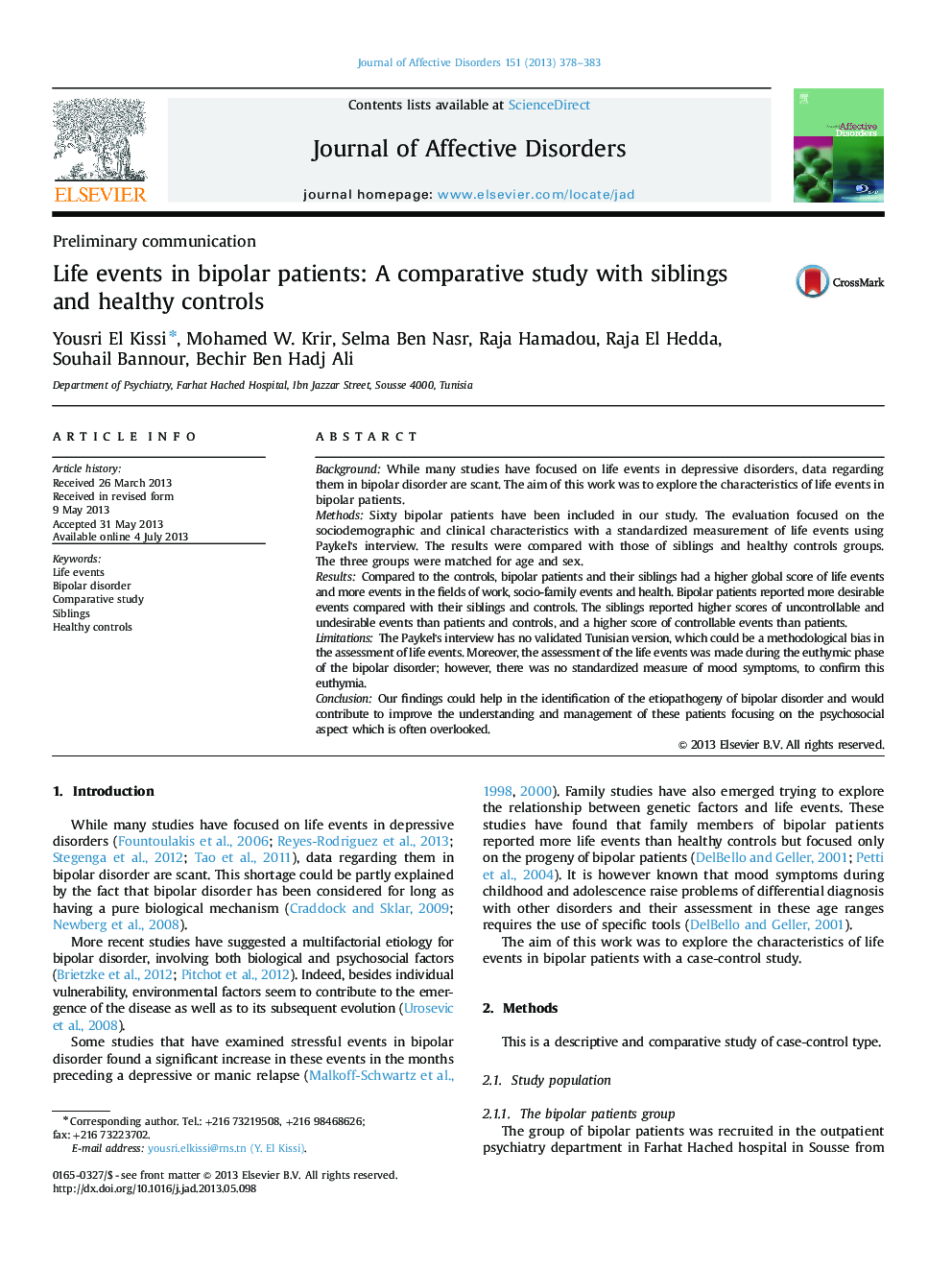| Article ID | Journal | Published Year | Pages | File Type |
|---|---|---|---|---|
| 6234114 | Journal of Affective Disorders | 2013 | 6 Pages |
AbstarctBackgroundWhile many studies have focused on life events in depressive disorders, data regarding them in bipolar disorder are scant. The aim of this work was to explore the characteristics of life events in bipolar patients.MethodsSixty bipolar patients have been included in our study. The evaluation focused on the sociodemographic and clinical characteristics with a standardized measurement of life events using Paykel's interview. The results were compared with those of siblings and healthy controls groups. The three groups were matched for age and sex.ResultsCompared to the controls, bipolar patients and their siblings had a higher global score of life events and more events in the fields of work, socio-family events and health. Bipolar patients reported more desirable events compared with their siblings and controls. The siblings reported higher scores of uncontrollable and undesirable events than patients and controls, and a higher score of controllable events than patients.LimitationsThe Paykel's interview has no validated Tunisian version, which could be a methodological bias in the assessment of life events. Moreover, the assessment of the life events was made during the euthymic phase of the bipolar disorder; however, there was no standardized measure of mood symptoms, to confirm this euthymia.ConclusionOur findings could help in the identification of the etiopathogeny of bipolar disorder and would contribute to improve the understanding and management of these patients focusing on the psychosocial aspect which is often overlooked.
